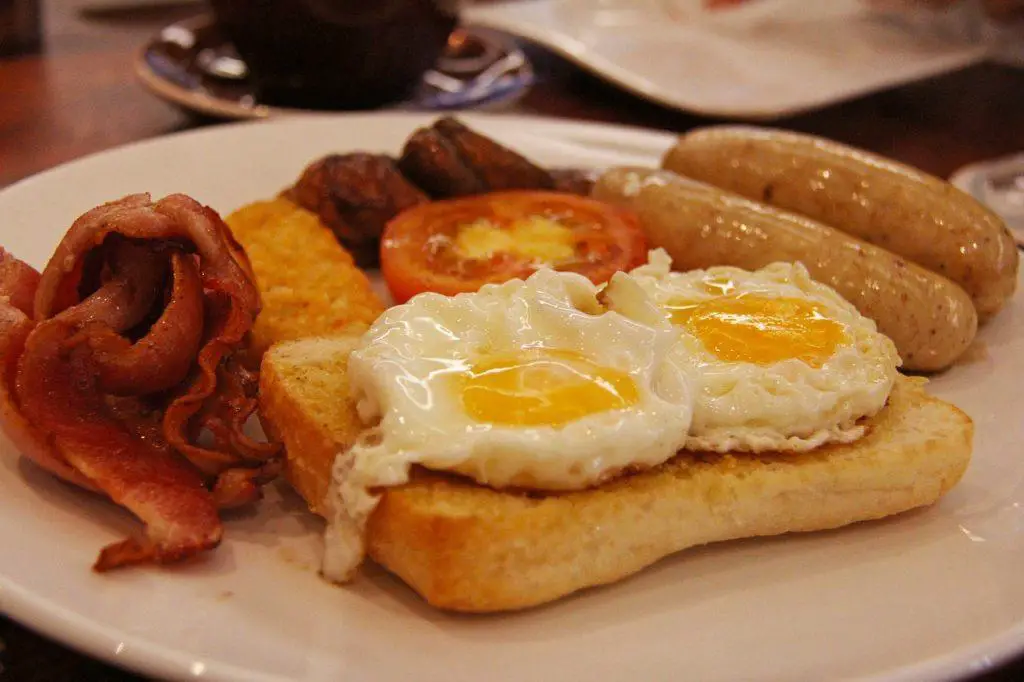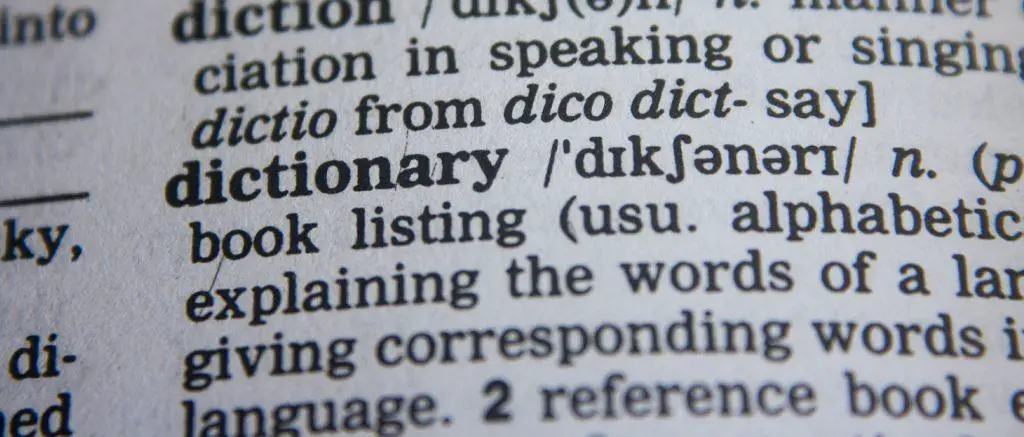British Meal Times – Introduction
British meal times can be a source of confusion for international visitors, especially when it comes to distinguishing between various mealtimes and the associated terminology.
This article aims to shed light on the intricacies of British meal times, the factors contributing to this confusion and provide valuable tips to prevent any awkward situations.
Whether you’re planning to visit the UK or simply curious about British dining customs, read on to unravel the mysteries of when and what the Brits eat.
For those of you who prefer your content in video format, here’s a video based on this blog post.
The Things That Are The Same
Before we delve into the intriguing aspects of British meal times that might leave you scratching your head, let’s start with the meal times that are straightforward and don’t cause any bewilderment:
- Breakfast – This is the first meal of the day, usually eaten in the morning, and the name itself is quite self-explanatory; it’s the meal that breaks your overnight fast.
- Elevenses – This is a charming British tradition, essentially a coffee break taken around 11 o’clock in the morning. It’s an opportunity to enjoy a cup of tea or coffee and perhaps a small snack.
- Afternoon Tea – This is another iconic British custom, occurring typically between 3 to 4 o’clock in the afternoon. It involves sipping traditional tea, often accompanied by delightful cakes and pastries.
- Supper – Supper in the UK is a light meal or snack that is often enjoyed before bedtime. It’s usually not as substantial as dinner and can consist of simple fare like sandwiches or soup.
- Brunch – This term, borrowed from the combination of “breakfast” and “lunch” (a portmanteau, or blend word), refers to a substantial meal that falls between breakfast and lunch. It’s often indulged in during weekends and can include both breakfast and lunch items.
These meal times are fairly universal and should pose no confusion for visitors.
However, the real dilemma arises when we explore the variations and regional nuances that make British meal times intriguingly complex.
British Meal Times That Cause Confusion
The source of confusion for many visitors lies in the differing terminology used to describe mealtimes in the UK.
Some people say “breakfast, dinner and tea“, while others say “breakfast, lunch and dinner“.
It’s as if the same word is used for the midday meal and the evening meal, which can be baffling for those unfamiliar with British customs.
Your geographical location within the UK and your social class can significantly influence which terminology you use. Very generally speaking:
- Lower-class individuals from the north of England are more inclined to use “breakfast, dinner and tea”.
- Upper-class individuals from the south of England tend to use “breakfast, lunch and dinner”.
It’s important to note that while these distinctions may exist, the British themselves typically don’t engage in open discussions about their social class.
As a foreign visitor, you probably don’t understand the class system and need someone to talk about it, in order to know what is going on. This article might help you to understand this a bit better.
The Dilemma – Dinner or Tea?
One of the most common scenarios where confusion arises is when you receive an invitation to ‘dinner’. Is it referring to the midday meal or the evening repast?
Imagine arriving at 12:30 PM, only to have your host express surprise, saying, “We didn’t expect you until 6”. Attempting to explain your misunderstanding can be awkward, as it implies misjudging their social class, which is considered impolite.
Similarly, if you accept an invitation for ‘tea’ and show up at 3 o’clock, only to be met with surprise, you might find yourself apologising, revealing that you assumed they were of a higher social class.
In both scenarios, unintentionally placing someone in the wrong social class can lead to uncomfortable situations and strained relations.
So, what’s the solution to this culinary conundrum?
A Valuable Tip – Ask for Clarification
Fortunately, there is a simple and effective way to avoid causing offense and showing ignorance regarding British meal times.
When you accept an invitation, whether it’s for ‘dinner’ or ‘tea’, ask your host what time you should arrive. This approach not only demonstrates your consideration for your host but also helps you align your expectations with theirs.
By proactively seeking clarification, you’ll ensure that you arrive at the appropriate time and avoid any potential misunderstandings.
It’s a small but thoughtful gesture that can go a long way in making your dining experience in the UK enjoyable and free from social faux pas.
When is Dinner Time UK and Other Mealtime Questions
Now, let’s look at some specific questions related to meal times in the UK:
What Time is Dinner Time UK?
The term ‘dinner’ in the UK can refer to either the midday meal or the evening meal, depending on the region and social class. This ambiguity often leads to confusion. Hopefully by now, this is clearer to you.
When is Lunch Time UK?
Lunch time in the UK typically falls around midday, usually between 12:00 PM and 1:00 PM. However, this can vary based on individual schedules and workplace customs.
UK Dinner Time vs. Lunch Time
In the UK, the distinction between ‘dinner time’ and ‘lunchtime’ can vary depending on regional customs and personal preferences. Generally, ‘lunchtime’ falls around midday, typically between 12:00 PM and 1:00 PM, when many people take a break from work or activities to enjoy a meal. This midday meal often includes lighter options like sandwiches, salads, or soups.
As we have seen, ‘dinner time’ depends on several factors, as described above.
By addressing these specific mealtime questions, we can further clarify the nuances of British dining customs and help international visitors navigate these cultural intricacies effectively.
British Meal Times – Summary
In summary, British meal times can indeed be perplexing for international visitors, primarily due to the nuances in terminology and the subtle distinctions in social class-related language choices. However, armed with the knowledge of these distinctions and the valuable tip of seeking clarification when accepting meal invitations, you can navigate British dining customs with ease.
Did you already know about these nuances in British meal times, or do you have an interesting story or experience to share?
Please tell us about it in the comments section below.
Understanding these cultural intricacies can make your visit to the UK more enriching and enjoyable.




As much as I’d like to just give a “tut tut” ( I’ll invite the author to explain, could be interesting..) and continue surfing the web, I fear I’ll regret not putting my 2 bob in..May I also begin by way of apology for my seemingly “factory” grammar, despite the fact I would confidently attempt writing a thesis on the minefield I witness here today! howzat!!
So..where to start.
The poor grammar..the stereotyping..Mmm.
The slight misinformation? maybe we’ve stumbled on a propaganda ( not to be confused wiv me “having a look around”) site of disinformation as a prelude to war, ok as if…Britain hasn’t been invaded since 1797, so allow me to also defend our shores and Louise (+ j,fhvetcetcetc) by way of agreeing that this article is a Croc of shi#e, I think that was the jist of it.
I’ll leave with two wishes firstly I do hope that no visitors of a foreign nationality have been poisoned by this crap and secondly the author took one of the courses recommended..oh don’t say they did Before submitting this B- key stage 2 attempt to educate.
little quick quiz..1. name a country without a class system?
2. describe a county. part or type of person(s) that would invite you to tea and shoot off before telling you what bloody time to arrive?
I jest of course and wish no harm or offence.
But please tidy this up..we’re missing dinner!
Interesting – thanks for taking the time to comment.
It says British all over the article including in the title. Where it says English is in the website name. Maybe it’s you who didn’t read the article.
Attacking someone saying they are living off of English taxes is completely unwarranted and has nothing at all to do with what time dinner is. Are you daft?
Louise last time I checked the title is business English success – not British nor is the title anything to do with the financial drag on are great country Scotland.
So I must say I agree with the author and say he is completely Wright in his article as in ENGLAND that is the difference as I am from London born and raised and we say breakfast lunch and dinner , where people from the north of the county Newcastle, Manchester, Liverpool etc say breakfast, dinner and tea.
So please refrain yourself from attacking someone’s work when you clearly don’t have the respect to even read the article properly before passing judgement.
Especially when you live off our country and taxes, with out England you would be a third world country behave yourself lmao.
As a British person…
I shall say – What a load of rubbish!
You have clearly no idea what you’re talking about to be able to educate others on this topic.
Also, England isn’t the only country that Britain contains. This is written more for England only yet states it’s for Britain.
You’ve not even covered Scotland at all. Which also has different terminologies for meals.
The breakfast lunch dinner or breakfast lunch tea situation used to be a class thing with its use in England. Decades and decades ago. It’s not now in 2020!
If someone turned up to your meal at the wrong time… People aren’t going to think you’ve mis-classed them. That is just hilarious!
Don’t sit on the fence – say what you really think! 🙂
It’s true that people don’t talk about class but if you think that it no longer exists, you’re only deluding yourself. The names that people use for various meals is confusing for foreigners and it was my intention to provide context and help for non-native speakers. You seem to be Scottish, so we’ll be kind and call you a native speaker 🙂
I’m sure there are other areas of the UK that have different names for all sorts of things. That doesn’t make the general terms invalid.
Yes, this is three years later but somehow it crossed my path.
As an American who grew up in Puerto Rico, I call the meals breakfast, lunch and dinner. In PR, the last meal was often called supper in English. My paternal grandmother was from the Boston, Massachusetts area and they said supper. I live in the Midwest of the USA (Kansas) and I’ve heard it both ways, although restaurants will have “dinner specials” in the evenings and “lunch” at midday.